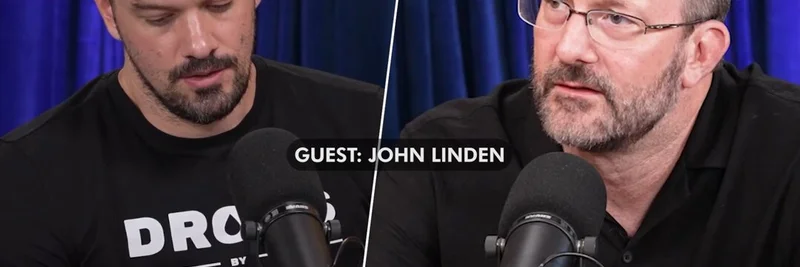In a recent episode of the Drops podcast, John Linden, the co-founder and CEO of Mythical Games, took on the challenge of explaining his company's mission to his mum. The conversation, shared by MR SHIFT (@KevinWSHPod) on X, offers a glimpse into the world of Web3 gaming and how Mythical Games is revolutionizing it.
Breaking Down Web3 Gaming for the Everyday Listener
John Linden's explanation is both concise and clear, making it accessible even to those unfamiliar with the technicalities of blockchain and gaming. He describes Mythical Games as "a technology company where we are trying to create a tradeable economy in games." This simple statement encapsulates the essence of what Mythical Games aims to achieve: empowering players by allowing them to own, trade, and interact with in-game assets in a manner similar to real-world economies.
What Does This Mean for Gamers?
For gamers, this means a shift from traditional gaming models where in-game items are often non-transferable and controlled by the game developers. Mythical Games leverages blockchain technology to ensure that players have true ownership of their digital assets. This ownership extends to the ability to trade these assets with other players, creating a dynamic and interactive economy within the game.
The Role of Polkadot in Mythical Games' Ecosystem
Mythical Games' move to the Polkadot ecosystem is a significant step in their journey. Polkadot, a multi-chain network, provides a robust infrastructure that supports interoperability and scalability. By migrating to Polkadot, Mythical Games can ensure that their games are not only secure but also capable of interacting with other chains within the ecosystem. This move is crucial for creating a seamless experience for players and developers alike.
Why Polkadot?
Polkadot's commitment to innovation, security, and governance aligns perfectly with Mythical Games' vision. The ecosystem's ability to support complex economic systems within games makes it an ideal platform for Mythical Games to build upon. This integration allows for the development of AAA-grade games that can leverage the full potential of blockchain technology.
The Impact on the Future of Gaming
The concept of a tradeable economy in games is not just a technical advancement; it's a cultural shift. It changes the way players engage with games, turning them into active participants in a digital economy. This shift has profound implications for the future of gaming, where player agency and economic interaction become central to the gaming experience.
Player Empowerment
By allowing players to own and trade their in-game assets, Mythical Games is fostering a sense of empowerment. Players are no longer passive consumers but active contributors to the game's ecosystem. This model encourages longer engagement and a deeper connection to the game world.
Developer Opportunities
For developers, the Mythical Platform offers a comprehensive solution to integrate secondary economies into their games. The platform manages the complexity of blockchain technology, allowing developers to focus on creating engaging game content. This democratization of game development can lead to a proliferation of innovative gaming experiences.
Conclusion
John Linden's explanation to his mum is a testament to the simplicity and power of Mythical Games' vision. By creating a tradeable economy in games, Mythical Games is not just changing how we play but also how we interact with digital assets. The integration with Polkadot further solidifies their position as a leader in the Web3 gaming space. As the industry continues to evolve, Mythical Games stands at the forefront, ready to shape the future of gaming.
For more insights into the world of Web3 gaming and the latest developments in the blockchain space, stay tuned to Meme Insider. We're here to help you navigate the complex landscape of meme tokens and emerging technologies.


